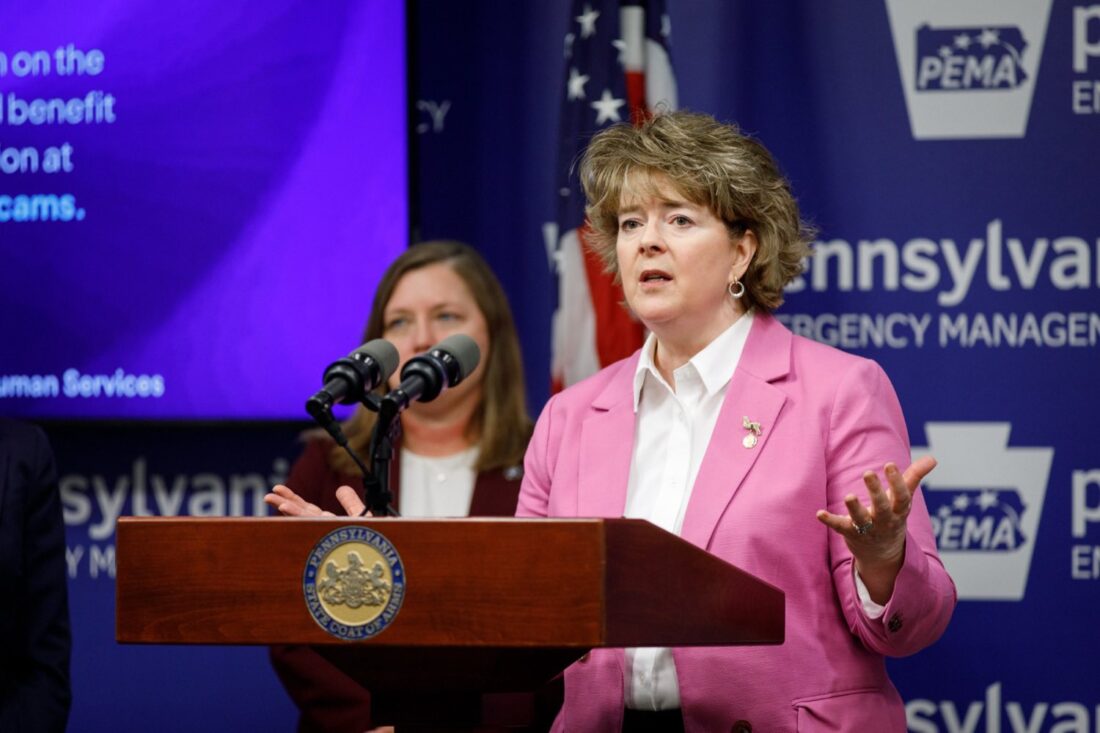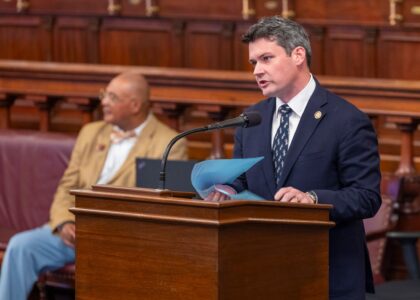GOP senators want to end SNAP benefits for junk food

The Pennsylvania Department of Human Services (DHS) and Office of State Inspector General (OSIG) announces the launch of a new electronic benefit transfer (EBT) card security feature to protect Pennsylvanians who receive Supplemental Nutrition Assistance Program (SNAP) and cash benefits from theft. Benefit recipients can now lock their EBT cards when they are not in use to protect their benefits from skimming and theft.
Legislation has been introduced in the state Senate that would direct the state Human Services Department to seek a waiver excluding junk foods from the state’s Supplemental Nutrition Assistance Program.
Senate Bill 1057 is sponsored by Sen. Michele Brooks, R-Greenville, has five co-sponsors, all Republicans, including state Sen. Scott Hutchinson, R-Oil City. Brooks formerly represented part of Warren County in the state Senate before redistricting a couple of years ago. It’s been referred to the Senate Health and Human Services Committee, which Brooks chairs and of which Hutchinson is a member.
“SNAP already excludes non-nutritive items such as alcohol, tobacco, hot prepared foods, and non-food items,” Brooks wrote in her co-sponsorship memorandum. “This reform applies the same principle, placing targeted limits on a narrow category of unhealthy products that demonstrably undermine public health. It also aligns Pennsylvania with other states pursuing similar waivers, and reflects longstanding restrictions in programs like WIC.”
A push to ban sugary drinks, candy and more from the U.S. program that helps low-income families pay for nutritious food has gotten a boost from the Trump Administration this year. Robert F. Kennedy Jr., federal health and human services secretary, and Brooke Rollins, federal agriculture secretary, have both signaled that they favor stripping such treats from SNAP, the Supplemental Nutrition Assistance Program. Kennedy has been most vocal, calling for the government to stop allowing the nearly $113 billion program that serves about 42 million Americans to use benefits to pay for ” soda or processed foods.”
The process to change what is available through a state’s SNAP program is difficult because the program is run by the USDA, not Health and Human Services, and is administered through individual states. SNAP is authorized by the federal Food and Nutrition Act of 2008, which says SNAP benefits can be used for “any food or food product intended for human consumption,” except alcohol, tobacco and hot foods, including those prepared for immediate consumption. So excluding any foods would require Congress to change the law — or for states to get waivers that would let them restrict purchases.
States to take action include Arkansas, Colorado, Florida, Idaho, Indiana, Iowa, Louisiana, Nebraska, Texas, Oklahoma, Utah, West Virginia. Brooks, Hutchinson and fellow Republicans in the state Senate want Pennsylvania to join the list.
“Nationwide, nearly ten percent of food stamp dollars are spent on sugary drinks each year, with another $600 million spent on candy and prepared desserts,” Brooks wrote. “Research has shown that high sugar, and ultra-processed diets contribute to obesity, diabetes, heart disease, inflammation, and other chronic, preventable conditions that disproportionately impact low-income communities. In children, these products are linked to developmental problems, attention deficits, and poor academic and behavioral performance. These harms impose growing costs on the Commonwealth, not just in reduced quality of life, but also in the rising burden on taxpayer-funded healthcare programs, which now spend over a billion dollars on costly weight loss medications.”
Earlier this year Brooks led an effort to pass Senate Resolution 119, a bipartisan measure she sponsored urging Congress and federal agencies to restore whole and 2% milk to school cafeterias across Pennsylvania and the nation. The resolution calls on Congress to support the Whole Milk for Healthy Kids Act of 2025 – H.R. 649 – and roll back outdated federal regulations stemming from the 2010 Healthy, Hunger-Free Kids Act that eliminated whole milk and severely restricted other milk options in schools. She tied that effort to her effort to limit what can be purchased with SNAP benefits.
“It’s hard to justify why children can’t drink whole milk at school, yet are allowed to buy pop and candy with taxpayer-funded food assistance,” Brooks wrote. “Sweet and salty treats may have their place, but SNAP should not subsidize a steady diet that contributes to the very health problems we are working to reverse.”






